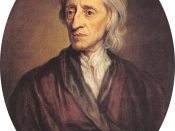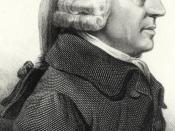Throughout our lives the limits to our freedom of thought and action are being defined by a variety of forces and pressures, many, if not most, of which we are completely unaware of. In society, there is a tremendously high degree of conformity of thoughts and ideas, values and attitudes between the members of the same society. We are free, free to do whatever we want with our lives, and no one can change that. When we talk about freedom of thought, we tend initially to think of legal and physical freedom and restrictions, what we are allowed to do and not allowed to do. It has been implicit in much that has been said that the person as he is, is a product of what he has been imposed upon him from without (from the home, from the church, from school, from the radio, from the press, T.V., and films) with the aim of restricting and challenging his freedom of thought and freedom of action.
According to McAdam (1963), this kind of individual has been faced with a constant bombardment of propaganda of one sort and another to help him build nice healthy attitudes and to follow acceptable modes of behaviour.
Liberals believe that human beings are, first and foremost, individuals, endowed with reason. In other words each individual should enjoy the maximum possible freedom consistent with a like freedom for all (Heywood, 2007:23). He goes on by saying "liberalism is characterized by a belief in a 'minimal' state, whose function is limited to the maintenance of domestic order and personal security" (Heywood, 2007:23). The ability to think or act as one wishes a capacity that can be associated with the individual, a social group or nation is what most of us understand by the single word: Freedom (Heywood,


